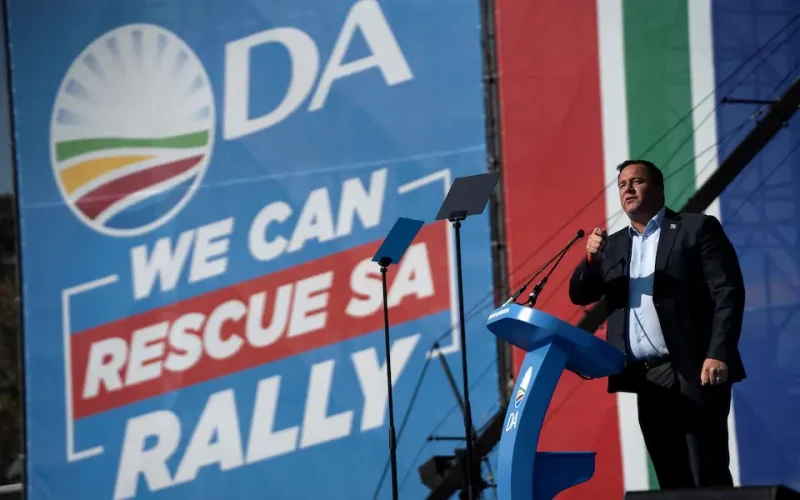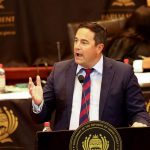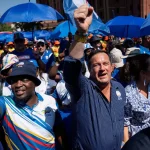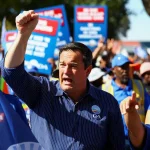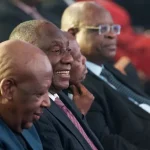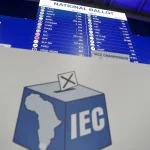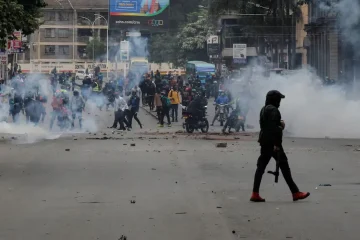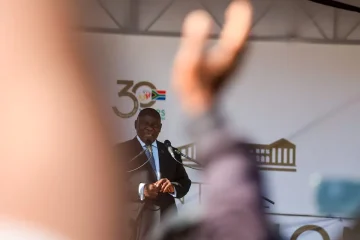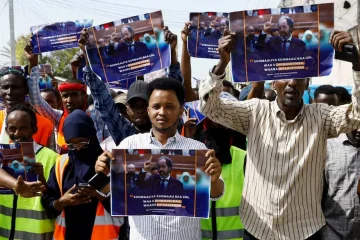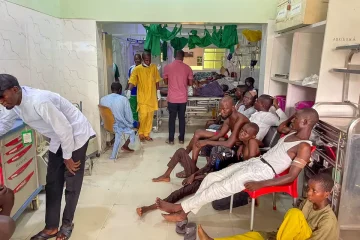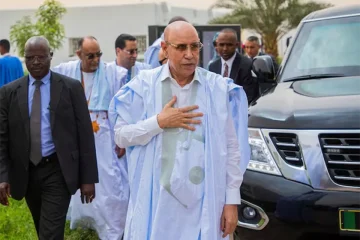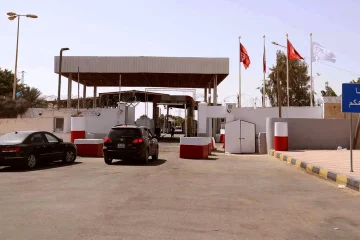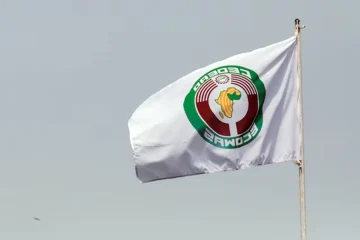LOOKNG out of his window at Cape Town’s False Bay, Nick Searra acknowledges that things do work better in South Africa’s second biggest city, a stronghold of the opposition Democratic Alliance (DA).
But that doesn’t mean he is ready to see the party or its 48-year-old leader John Steenhuisen running the rest of the country.
“Imagine an old white man as the president of South Africa,” said Searra, a 44-year-old white Johannesburg native who moved to Cape Town in 2022.
In a seismic shift, voters this week dismantled the majority that the African National Congress (ANC) has held since the end of white minority rule in 1994, leaving the party of the late Nelson Mandela little choice but to seek a coalition with a major rival.
Despite their own lacklustre performance, an improvement of just one percentage point from the last vote in 2019, the DA and Steenhuisen suddenly find themselves in an unprecedented position.
The ANC remains the largest party despite the damage done by an upstart rival led by former President Jacob Zuma, and is therefore expected to retain the presidency.
But as the second biggest political force with 21.8% of votes, the DA is one of three parties with the clout to help it form a new majority and potentially shape the future of the nation.
“We’ve said for the last 30 years that the way to rescue South Africa is to break the ANC majority. We’ve done that,” Steenhuisen said as the outcome of Wednesday’s vote became clear.
Yet in a country with a painful history of codified racism – apartheid – where white South Africans make up just 7% of the population, the DA is struggling to shake off an image as a party of rich whites and prove it reflects the make-up and aspirations of all.
For political analyst Melanie Verwoerd, the problem is as much ideological as racial.
Steenhuisen, a champion of economic liberalism, has vowed to end a racial quota system for employers established by the ANC to redress decades of apartheid discrimination and wants to loosen labour laws.
And, in a country of 62 million people where 24 million survive on welfare, he is pushing for a smaller role for government.
“I don’t believe that they set out to be a party of white privilege,” said Verwoerd. “But they end up being that.”
That’s a common accusation the DA has repeatedly rejected.
‘BETTER THAN OTHER PROVINCES’
In contrast to South Africa’s broader economic stagnation, crisis-level unemployment and crumbling infrastructure, Western Cape – the province the DA has controlled since 2009 – has done measurably better.
It boasts the country’s lowest jobless rate. Its main city Cape Town is a major tourist destination. Even the country’s notorious power cuts are less severe.
According to one opinion survey, Western Cape and Cape Town are viewed as by far South Africa’s best-governed province and major city.
“It’s better than the other provinces,” said Lauran Musgrave, 31, a Cape Town resident and DA supporter. “They are the guys that should be ruling the whole country.”
But in a city that remains heavily segregated – a lingering legacy of apartheid’s legal separation of the races – not everyone agrees.
Black tour guide Theo Makhaphela, 39, frequents both the immaculately maintained seafront and poor crime-ravaged townships where the army has in the past been deployed to quell deadly gang violence.
“They talk a good game. But on the ground, if you’re from here, you know what’s on,” he said.
Solly Malatsi, a Black DA leader, says the party is making progress with Black voters.
“Our support among Black voters is on an upward trajectory,” he said, claiming the party had improved its scores in predominately Black areas in Wednesday’s election.
In Western Cape, DA officials say the Cape Town and provincial governments spend more on services for poorer areas than wealthy ones.
Zwelivelile ‘Mandla’ Mandela – the grandson of Nelson Mandela and a traditional tribal leader – doesn’t buy it.
“As much as they can claim successes, those successes continue to be only for the few,” he told Reuters. “The poorest of the poor are still living without any access to clean drinkable water, without any proper sewer systems.”
A POLITICAL HOME FOR ALL?
When Phumzile Van Damme joined the DA, she thought she’d found a political home.
Elected to parliament in 2014 and made the party’s national spokesperson, she was among a crop of young Black lawmakers – including a new national leader, Mmusi Maimane – focused on making the DA more inclusive.
“It was an exciting time,” Van Damme told Reuters. “The messaging was really about building a home for all South Africans.”
For a while at least, it looked as if things were heading in the right direction, she said. That changed after a disappointing 2019 election in which the DA lost a portion of white Afrikaans-speaking voters.
“There was a fear of all these Black people coming in … Look at how much they’re changing the party,” Van Damme said.
Maimane, the DA’s first Black leader, resigned, accusing some within the party of undermining his efforts to court Black voters. He was replaced by Steenhuisen.
The Black DA mayor of Johannesburg also stepped down and was followed by other DA lawmakers in the following years, including Van Damme.
She said she does not consider the DA to be racist. It simply reflects the country’s broader struggles with race and, to her as a Black lawmaker, it no longer felt like a welcome home.
“While individuals are entitled to versions about their own experiences, I think nothing could be further from the truth,” Malatsi told Reuters, responding to Van Damme’s assertion that the DA had become unwelcoming.
Helen Zille, another senior leader, pointed to the DA’s 452 Black public representatives as proof of its commitment to inclusion.
Seven of the 13-member national leadership, however, are white, including Zille who was once suspended from the party for writing on Twitter that the legacy of colonialism was not entirely negative. Zille, once a prominent anti-apartheid journalist, later apologised for the comments.
“The only party that’s demanded to have diverse leadership is the DA, and we’re the only one that does,” she told Reuters when asked about the leadership composition.
“And we’re the only one that keeps on getting criticised.”

